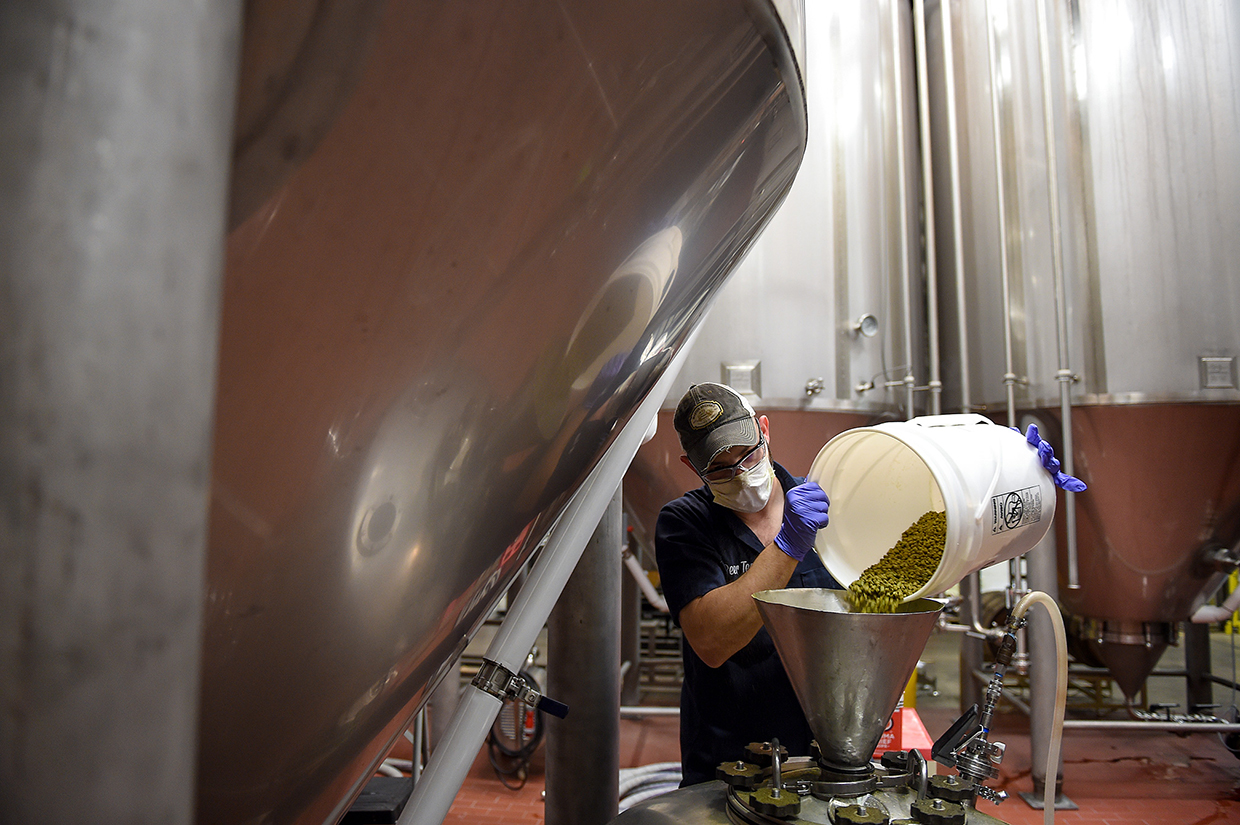
You can probably recall at least one occasion where you’ve heard one person refer to another as a “born salesman.”
It’s an oft-heard expression, but It’s not one that Eric Butler, head of sales for Wolf’s Ridge Brewing, believes has any merit. There are innate qualities that certainly help propagate success, but education is a necessary piece of the puzzle.
“In my opinion, salespeople are trained, not born,” Butler told Brewer Magazine. “Experience in the industry is excellent for historical knowledge, but we have had great success bringing on people who have worked in service roles at the restaurant. Attitude and enthusiasm are the two most essential qualities in a hire.”
Add communication to that mix, noted Liz Patterson, sales director at MadTree, who said building and maintaining relationships were key to a salesperson having success in the market.
“Honest, open and clear communication will help someone build relationships that are built on trust and mutual respect,” Patterson said. “I would also say showing up, making yourself available and following through on what you say you are going to do.”
Patterson said that when hiring sales professionals, she asked questions to get a good idea of how likely the candidate she’s talking to is going to meet those criteria.
“During interviews I ask a lot of questions around how this person might stay organized, have them give examples of pre-planning and prioritization methods,” she said. “Ask for references in the business and reach out to those folks.”
Once you’ve hired your candidate, tools are available to help the training process.
“Anything that helps from a tracking and documenting perspective,” said Patterson when asked for examples of helpful training aids. “VIP is the tool we use to track depletions, or sales from distributors to retail accounts, and Karma is what we use to document account visits, notes and commitments for sales. IRL data helps with showing us market insights/trends and our competitive sets within different landscapes across the chain business.”
Advocacy groups are also good resources.
“The Brewers Association has some great resources we utilize for pieces of training and industry information,” Butler added.
Getting to know the person you’ve hired is key to helping them succeed. Remember that you’re dealing with an individual.
“Just spend time with them,” Patterson said. “Work the market with them, and be transparent on what they are doing well and where they have opportunity for growth. Build out a plan with them, together, to become a better sales rep. Communication, internal and external, are both very important. These sales folks are the front line of our business and they need to remember to be professional, kind and courteous at all times.”
Setting clear expectations is also an essential step, as is giving the new hire some space in which to operate.
“Make sure the reps know what they should be focusing on and prioritizing so those things align with the overall company objectives,” Patterson said. “Make sure the sales reps know what is expected of them and hold them accountable to those guidelines. Avoid getting lost in the weeds and micromanaging. Most folks want to succeed, so making sure to give them the room to do so is important.”
At smaller businesses like Wolf’s Ridge, assigning additional roles to sales reps can help your business grow.
“Being a small business, our employees at Wolf’s Ridge Brewing are often called to wear multiple hats,” Butler said. “Existing sales reps handle much of the training in the market, with sales leadership conducting teaching selling strategies and tactics.
“The head of quality control handles beer education and sensory training. Any new sales rep always shadows the brew house and spends time with our delivery drivers. We utilize EKOS for our invoicing system, which has a steep learning curve with ongoing training.”
Managing workflow and performance
Once your sales professional is up to speed and ready to go, what should their day-to-day routine include?
“A good mixture of chain and on/off premise account calls, working closely and coordinating with the distributor partners, seeking out and executing on opportunities that arise, maintaining quality out at accounts, building fans for the brand by executing samplings/events/trainings, and education on the brand,” Patterson answered. “Also, putting out fires. There are a ton of things that pop up throughout the day. The sales reps need to know when it is a true emergency and when it can wait.”
Wolf’s Ridge has activity and financial goals for sales reps, Butler said.
“We track the number of stops and the number of new account prospecting that our reps do,” he explained. “We also monitor the draft-to-package ratio to ensure we are making money on every batch. Most of our time is spent in the market talking to customers.”
Metrics are also priorities at MadTree, where sales professionals are also heavily tracked.
“The number of account visits they have to make weekly, and documenting of said account visits, weekly distributor facing communication on wins, follow ups, opportunities and inventory updates, monthly expectations for tracking their budgets, their 50 core accounts, and events/trainings/work-withs from the month,” listed Patterson. “Incentives are usually based on what current quarter priorities are: channel and brand driven, display execution and events/displays around our marketing campaigns.”
While you’re requiring them to pull their weight, you don’t want to overwork them or risk having them burn out.
Butler said burnout was a big problem for Wolf’s Ridge during the pandemic.
“We lost several great people after two-plus years of selling in that environment,” he noted. “It has taught me to pay more attention to the emotional health of employees and to make sure people are taking time off and taking care of themselves. Catching problems early can be critical.”
Patterson echoed that sentiment and shared some ways to ensure that as a sales director, you’re making sure they stay happy enough to remain effective.
“Review expectations and priorities,” she said. “Make sure they are not overworking themselves and remind them it is ok to say ‘no’ to people. Reiterate the importance of a healthy work life balance and that asking for help only makes us stronger as a team.
“If they are feeling overwhelmed with their tasks, help them to look at things in a different way. Are they taking care of themselves, their family obligations, healthy living, communicating clearly to the proper departments? These all lean into being a more productive salesperson. Remind them they have an amazing group of co-workers that are willing to help support them.”




Be the first to comment